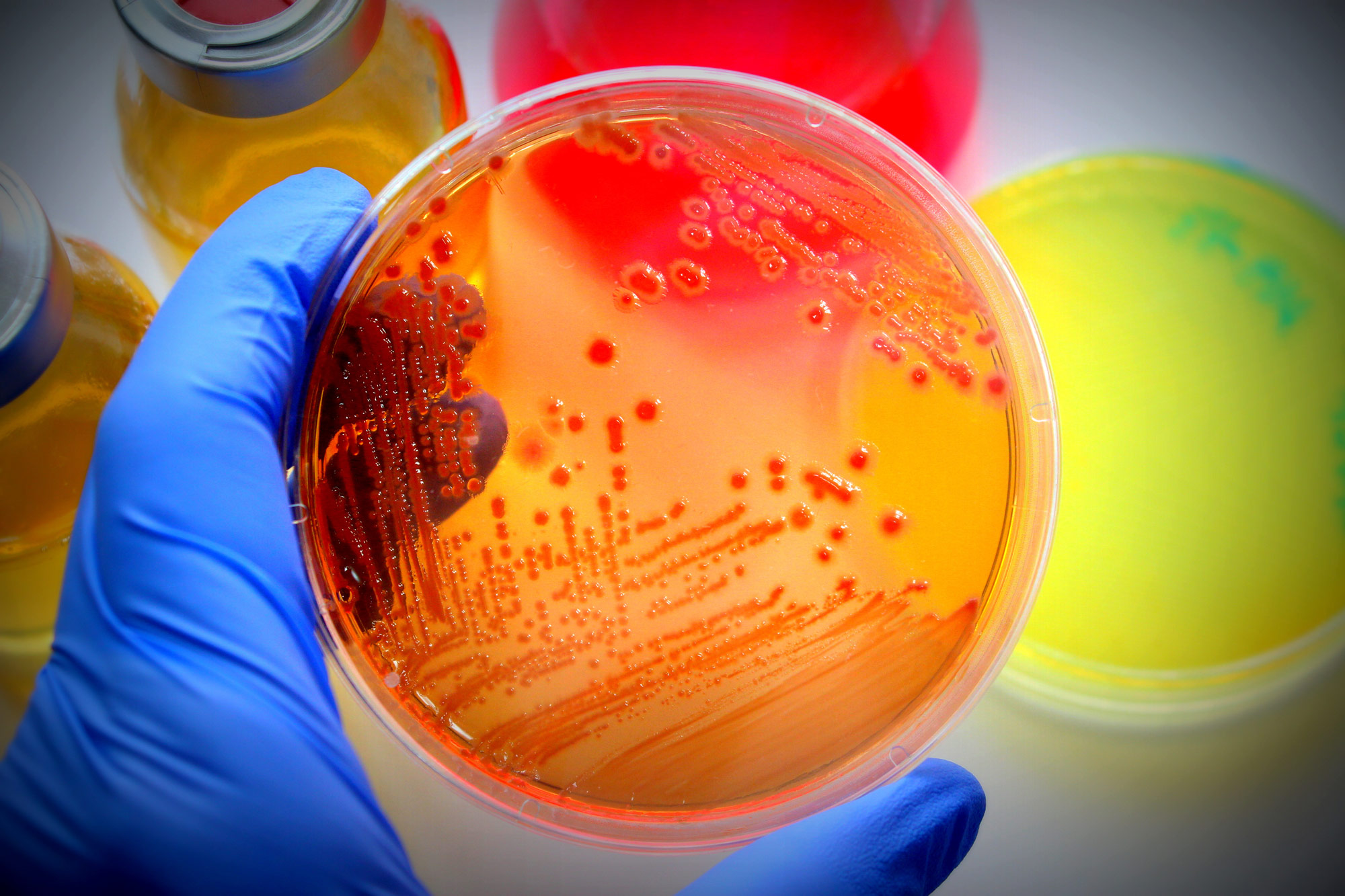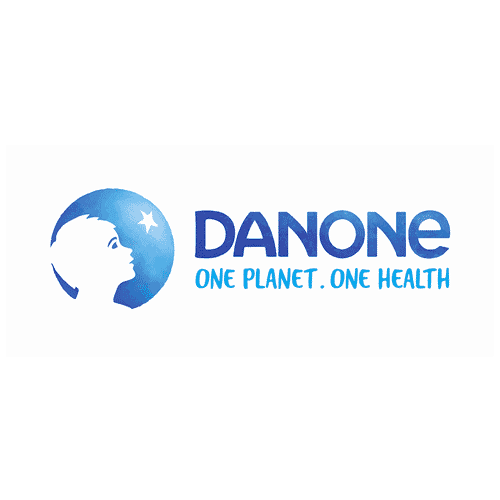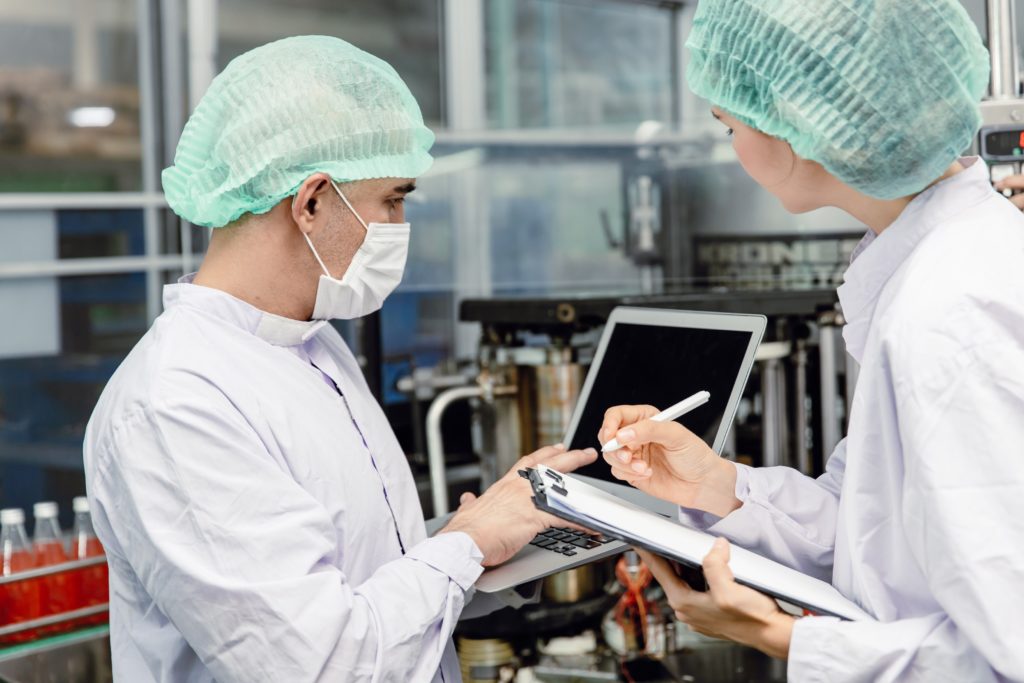
Bioproduction

Make your production processes more sustainable at lower cost
Our specialized team supports pharmaceutical, materials, food and cosmetics manufacturers in their biomanufacturing projects to develop a more sustainable and responsible approach to production.
They trust us














The challenges related to bioproduction
Bioproduction, which involves the use of living cells or organisms to produce useful products, has become an increasingly popular method across industries, due to its potential to produce high-value products at a lower cost. However, as we are dealing with living organisms, the processes are more difficult to control, and optimization is endless, from the very first step: getting the right performant master cells or organisms that will produce the compound, to downstream purification of the compound, through proper process monitoring to increase yields and ensure both quality and safety of the final product.
Therefore, the field is constantly evolving, and this triggers specific challenges, technological ones for sure, but also the strategic choice of producing in-house or subcontracting to experienced players, the compliance to local regulations that evolve themselves, to name a few.
The success of this process relies on the conditions of many factors, including the cell line, the cell culture media, and the bioreactor configuration. If any of these aspects are disrupted, consistent yielding becomes particularly challenging, as this process requires continuity and stability of physico-chemical factors such as pH conditions or osmotic pressure, in order to maintain performance goals.
Scaling up still remains a challenging task, requiring the selection and optimisation of the right parameters, as well as finding the tailored mix of components, improving the stability of the resulting biomolecules.
Lastly, it involves the use of living organisms, which can raise concerns about safety. One of the primary risks is contamination during the manufacturing by harmful microbial strains, viruses, or other pathogens that can affect the quality and safety of the final product. Bioproducts can also contain impurities, including host cell proteins, DNA and endotoxins.
What are the technological limitations of biomanufacturing and what are the developing solutions to break them? What are the latest innovations? What are the key criteria to consider when choosing a system?
As these technologies are evolving, and unexpected issues will undoubtedly occur when trying to scale-up the slightest improvement, the make or buy question is a prominent one in biomanufacturing. It is reinforced by a relative lack of talents in the space, or at least a limited number of experienced professionals to be hired, the high capex needed to set up a new facility, and ultimately the scale effect.
The freedom to operate is also to take into account as the field is well covered with a lot of patents, protecting cell lines, technologies, processes and their monitoring tools, etc.
Numerous companies across the globe are offering bioprocessing services today (Contract Manufacturing Organizations): different systems, either proprietary or not, different bioreactor sizes, different quality grades (e.g. GMP/GRAS or not), … The supply and demand market has struggled to stabilize for decades, with peaks of over- and under-capacities.
What are the key criteria to consider when choosing a partner? How to secure bioproduction supply? How to ensure strategic autonomy?
Bioproducts often involve genetically modified organisms, whether they are micro-organisms, insects, plants or animals sometimes. This may raise ethical concerns related to the use of animals in particular, such as transgenic animals, and broadly, the use of living organisms for commercial purposes, and the long-term effects of such modifications.
The environmental impact should be very dependent on the bioprocessing system itself, more specifically on the consumables and the waste, and on the bioproduct usage. It is still to be assessed on case-by-case basis, so the conceptual sustainability of industrial bioprocessing remains uncertain.
How to assess the concrete environmental impact of a given bioproduction? Because biomanufacturing is all about optimization, how can we optimize the environmental impact of a given bioproduct?
The regulatory environment around this process is still evolving, with the rise of numerous regulations and guidelines governing this sector. For instance, handling and disposal of biologics are important regulatory aspects to ensure safety and minimize environmental impact. Compliance with these regulations is essential for obtaining approval for the commercialization of these products. However, ensuring such compliance can be challenging and requires strict quality control measures.
How do manufacturing procedures align with local markets regulations? What kinds of regulatory challenges will the industry face in the future?
How we support you in your projects related to bioproduction
Alcimed has been supporting many clients on issues related to bioproduction and biomanufacturing, leading more than 100 projects on this topic. The diversity of our clients (pharmaceutical industries, biotechs, CDMOs / CMOs, research centres, national institutions, etc.), the geographical fields we explore, and the types of projects we carry out, gives us a global and in-depth understanding of the issues addressed.
In our projects, we have accompanied several industry players to improve the production of bioalternatives, by understanding current bioprocessing methods, assessing their optimisation potential and creating recommendations to avoid roadblocks and to seize main opportunities.
Our projects cover topics as diverse as market study for a given bioproduct, needs and expectations assessment, market sizing, partner scouting, technology scouting, value proposition and development of go-to-market strategy, aligned with local regulatory bodies imperatives, to name a few.
Examples of recent projects carried out for our clients in bioproduction
Comparative analysis of vaccine bioproduction processes
For a leading vaccine player, Alcimed conducted a comparative analysis to understand vaccine manufacturing steps across key stakeholders in the vaccine industry. The project aimed to understand the commercial application of the products as well as the current market offer.
Our team performed a comparative benchmarking across available bioprocessing services, evaluating their status-quo with respect to elements such as scalability and cost, while also considering regulatory aspects.
The project considered the role of external factors, such as differences in manufacturing facilities or geographical specificities for each analysed site. At the end, our team was able to propose key next steps for a unique value proposition and differentiation from competitors.
Optimisation of biomanufacturing for the agri-food sector
Our team helped a player in the bioprocessing field to improve the production of alternative proteins.
The project consisted in understanding current methods (for instance, in yeasts and bacteria), while assessing their optimisation potential in the near and mid-terms.
Recommendations were built upon the identification of the main biotechnologies and potential partners, based on roadblocks and main opportunities.
Search for potential partners for bioproduction in developing countries
Alcimed supported an emerging biotechnology company in the search for partners to set up a novel bioprocessing technology aiming to produce more affordable, and consequentially more accessible, pharmaceutical products (biosimilars) in developing countries.
To do so, our team helped in identifying funding resources, organizations and potential partners to set up the technology and the production platform of our client in the designated low- and middle-income countries.
In this project, we exchanged with Key Opinion Leaders (KOLs) promoting local pharmaceutical production and access to medicines in the countries in-scope, as well as started discussions with international organizations providing resources for the establishment of healthcare production facilities in low-income countries including NGOs, investment funds & governmental organizations.
Strategic positioning of a CDMO player biomanufacturing innovative therapies
Alcimed supported a European bioprocessing player in the definition of its CDMO strategy for biomanufacturing innovative therapies for third parties.
This project explored how our client’s current solutions are perceived, and benchmarked international solutions to identify best practices. The strategic analysis also included an assessment of several scenarios and an understanding of the different implications regarding financial, legal and organizational aspects. Our team then defined a roadmap to implement the preferred scenario, accompanied by a customizable business plan (financial, HR).
Following market validation of our client’s value proposition, our project team proposed a new operational model for our client’s biomanufacturing activity, aiming at better adapting the offer to the challenges of the market and the dynamics of the local ecosystem.
Evaluation of the potential of exosomes technologies for a leading pharma company
Our client, a leading pharmaceutical company, sought to develop new technological platforms for bioprocessing beyond oncolytic viruses. Their focus was to assess the potential of exosome technologies and integrate them into their strategic roadmap.
To achieve this, we conducted a comprehensive exploration of exosome technologies, examining market trends, regulatory landscapes, and key players. We engaged with industry pioneers and gathered cutting-edge insights from KOLs in the field of exosomes and extracellular vesicles. Based on our findings, we recommended strategic positioning for leveraging exosome technologies in bioprocessing innovation.
The impact for the client was significant. The synthesis of key aspects of exosome technology was presented to their scientific advisory board, providing the strategic guidance needed to make informed decisions. This positioned them at the forefront of bioprocessing innovation.
Landscaping in vivo incorporation of non-canonical amino acids in irecombinant proteins for a global pharmaceutical player
Alcimed conducted a global search for companies, technologies, patents, and research groups who have advanced the ability to incorporate non-canonical amino acids into expressed recombinant proteins for a global pharmaceutical player.
We used a combination of interviews, literature research, and database mining to create an overview of companies with the ability to express recombinant proteins that contain non-canonical amino acids.
This research aided our client by revealing early stage technologies that are ripe for investment, identifying potential partners for the bioproduction of proteins with non-canonical amino acids, and by discovering new companies in this space previously unknown to our client.
Understanding of white biotechnology in Europe for an industrial launching an innovation hub on sustainable materials
White biotechnology uses microorganisms, often engineered via synthetic biology, to industrially produce chemicals and materials. We accompanied an industrial launching an innovation hub on sustainable materials understand the number and economic sectors of white biotechnology start-ups in Europe.
We also investigated the demand for white biotechnology products as well as trends in the technological applications for white biotechnology in Europe.
Through our results, we helped our client understand that the bioproduction infrastructure necessary for companies to develop white biotechnology, even at the pilot and demonstration stage, is still insufficient in Europe, and what his hub could provide to fill some of the gaps.
Creation of the healthcare sector roadmap of a French urban area in identifying reindustrialization opportunities in the fields of e-health and bioproduction
Our client, one of the largest French urban areas, wanted to understand the areas to prioritize in its health sector in order to implement a strategy that would offer support and attract industrial projects.
After an internal sector inventory and understanding the overall dynamics and policies of the field’s investments, we identified e-health and bioproduction as two particularly pertinent sectors.
In the context of our project, the client could deploy a roadmap and plan of actions to implement in the healthcare domain.This included a targeted policy to attract a pharmaceutical production unit by making direct contact with players in the healthcare sector, and presenting the region’s value proposition to attract future investment.
You have a project?
To go further
Healthcare
Molecular pharming: how plant-based pharmaceuticals can revolutionize drug development and manufacturing?
What are the benefits of molecular pharming? Why can plant-based pharmaceuticals be interesting pharmaceutical alternatives? Alcimed explored the potential of molecular pharming to revolutionize drug ...
Healthcare
Process Analytical Technology (PAT): new control methods that revolutionize biomanufacturing
Alcimed has analyzed the basic trend of new quality controls which will be an integral part of the pharmaceutical bioproduction sector in the near future.
Healthcare
Oral delivery of biologics: what developments for the next few years?
Although in development, biologics are limited by oral administration. So what are the solutions? Here's a closer look at future developments.
Founded in 1993, Alcimed is an innovation and new business consulting firm, specializing in innovation driven sectors: life sciences (healthcare, biotech, agrifood), energy, environment, mobility, chemicals, materials, cosmetics, aeronautics, space and defence.
Our purpose? Helping both private and public decision-makers explore and develop their uncharted territories: new technologies, new offers, new geographies, possible futures, and new ways to innovate.
Located across eight offices around the world (France, Europe, Singapore and the United States), our team is made up of 220 highly-qualified, multicultural and passionate explorers, with a blended science/technology and business culture.
Our dream? To build a team of 1,000 explorers, to design tomorrow’s world hand in hand with our clients.
Organisms such as bacteria, yeasts or cell cultures can produce products such as biologics, enzymes, biofuels and pharmaceuticals. This process is called bioproduction (or bioprocessing/biomanufacturing) and can benefit several industries.
For example, in the pharmaceutical sector, biomanufacturing allows the production of biological molecules, such as therapeutic proteins, antibodies, and other biologics through the use of living cells or organisms (e.g. bacteria, yeast, mammalian cells, plants or transgenic animals).
In the materials sector, these techniques can be used to produce a wide range of natural alternatives such as biopolymers, biocomposites, and biomaterials. Biopolymers, for example, can be used to replace traditional petroleum-based plastics in a wide range of applications, including packaging, textiles, and construction materials.
There are also several applications in the food and cosmetic sectors, for the production of ingredients or nutriments (e.g. vitamins). The advantage of biomanufacturing can be either to obtain more “natural” compounds, compared to chemical synthesis, or to get compounds we cannot produce synthetically.
Bioproduction uses a variety of methods, mainly including fermentation, cell culture and transgenic organisms.
- Fermentation is used to grow microorganisms such as bacteria, yeast, or fungi in large-scale bioreactors. This method is employed to produce a wide range of biomolecules, including antibiotics, enzymes, and complex organic molecules used as intermediates in pharmaceutical synthesis. Fermentation offers flexibility in substrate utilization and process optimization, making it suitable for both small molecule and biologics production.
- Cell culture involves the cultivation of cells (such as mammalian, insect, or bacterial cells) in bioreactors under controlled conditions. Cell culture technology is crucial for producing recombinant proteins, monoclonal antibodies (mAbs), and viral vaccines. It allows for scalable production and optimization of culture conditions to ensure high yield and purity of the final product.
- Transgenic organisms such as transgenic animals or plants, are employed to produce pharmaceutical proteins or vaccines. This method leverages the organism’s ability to express and secrete specific proteins or compounds of interest, which can be harvested and purified for pharmaceutical use.


